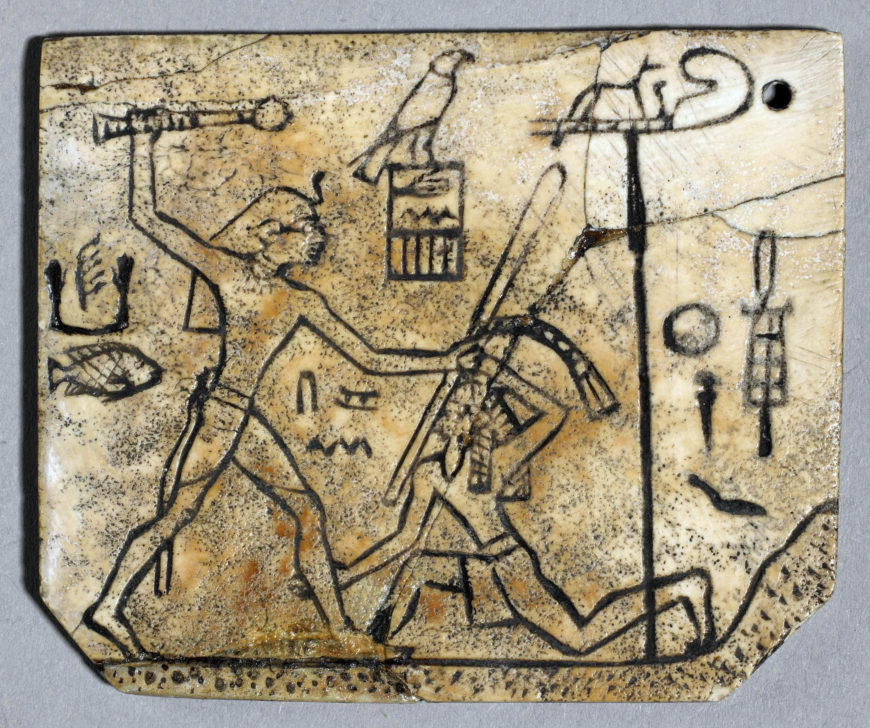
King Den’s sandal label, 1st dynasty, ivory, found at Abydos, Upper Egypt, 4.5 x 5.3 cm (© Trustees of the British Museum)
This ivory plaque is a label. The sandals incised on the back indicate that it was originally attached to a pair belonging to Den, the fifth king of the First Dynasty.
In the First Dynasty, such labels were often attached to oil jars and usually decorated with representations of important events that marked a particular year in a king’s reign as a way of recording the date of production. This example shows Den about to bring his mace down on the head of a fallen enemy. The king’s name is written in front of his face in a rectangular frame surmounted by the falcon god Horus, the patron deity of kingship. The hieroglyphs on the right-hand side tell us the name of this important event: ‘the first occasion of smiting the East’. The long hair and pointed beard of the enemy are typical of the way Ancient Egyptians depicted foreigners from the east. The gravel-spotted desert, rising to a hill on the right, places the action in a foreign land.
One of the main duties of every king was to protect Egypt’s borders from foreign invasions. For this task, King Den has enlisted the help of the gods. The tall pole bearing the symbol of the jackal god Wepwawet, ‘the opener of the ways’, shows this support. On the king’s forehead, is a rearing cobra or ‘uraeus’, signifying the protection of the powerful goddess Wadjet. Worn for the first time by Den, the uraeus will become a significant part of the royal crowns of kings and queens.
The king smiting his enemies is one of the longest-lived subjects in Egyptian art and became a standard image for royal propaganda. This does not mean that every king undertook a military campaign. For Den we know that this label records an historical event since an identical scene has recently been discovered carved into a rock face in the Sinai Peninsula. The real purpose of Den’s expedition to Sinai was probably to acquire copper and turquoise from the mines located there. Whether this scene reflects the actual use of physical violence to obtain these materials or is only symbolic remains unknown.
© Trustees of the British Museum

